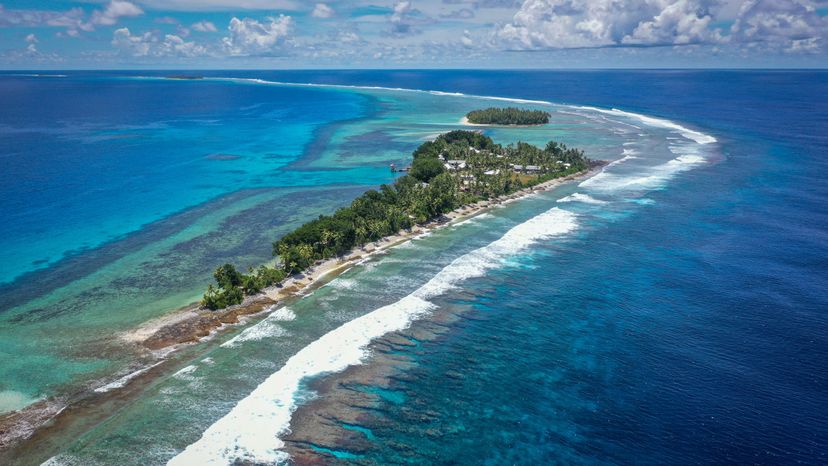Nestled in the Polynesian subregion of Oceania, Tuvalu is a breathtaking island group consisting of nine coral atolls. With its location in the South Pacific Ocean, Tuvalu is one of the Pacific Island countries, offering visitors a chance to experience the tranquil beauty of the South Pacific. The nine atolls, each with its own unique charm, are home to picturesque landscapes, sandy beaches, and lush coconut palms, making it a perfect destination for those seeking the serenity of the Pacific Islands.
Diving beneath the surface, the crystal clear waters surrounding Tuvalu reveal an underwater paradise teeming with marine life. From vibrant coral reefs to an abundance of fish, turtles, clams, and more, Tuvalu’s waters are a haven for marine enthusiasts. The island nation’s commitment to conservation efforts ensures that this aquatic wonderland remains pristine for future generations to enjoy.
Abundant Marine Life
Tuvalu’s coral reefs serve as the foundation for a thriving marine ecosystem, supporting an incredible array of species. Visitors have the opportunity to encounter an array of:
Making it an unforgettable experience for marine aficionados. The rich diversity of marine organisms in Tuvalu’s waters is a testament to the health of the coral reefs and the dedication of the local community to protect their natural resources.
The government of Tuvalu recognizes the importance of preserving its marine resources and has implemented various conservation initiatives. These efforts include the establishment of marine protected areas and the promotion of sustainable fishing practices, ensuring that the aquatic life in the country remains vibrant and healthy for years to come. This commitment to conservation not only protects, but also protects. Tuvalu’s unique marine environment contributes to the overall well-being of the planet.
Island Hopping Adventures
One of the best ways to experience the beauty of Tuvalu is by embarking on an island-hopping adventure. Traversing the nine islands of the nation, each with its distinct ecosystem, offers an unparalleled opportunity to immerse oneself in the diverse landscapes and rich culture of this Pacific paradise. From the lush greenery of Nanumea to the pristine beaches of Funafuti, each island offers a unique experience, making island hopping a must-do activity for any visitor to Tuvalu.
In addition to the breathtaking scenery, Tuvalu is also home to a variety of sports and activities that can be enjoyed by visitors. Volleyball, football (soccer), and cricket are widely enjoyed on the islands, providing a fun and engaging way to connect with the local community and immerse oneself in the vibrant culture of Tuvalu.
So pack your bags and prepare for the adventure of a lifetime in this enchanting island nation.
